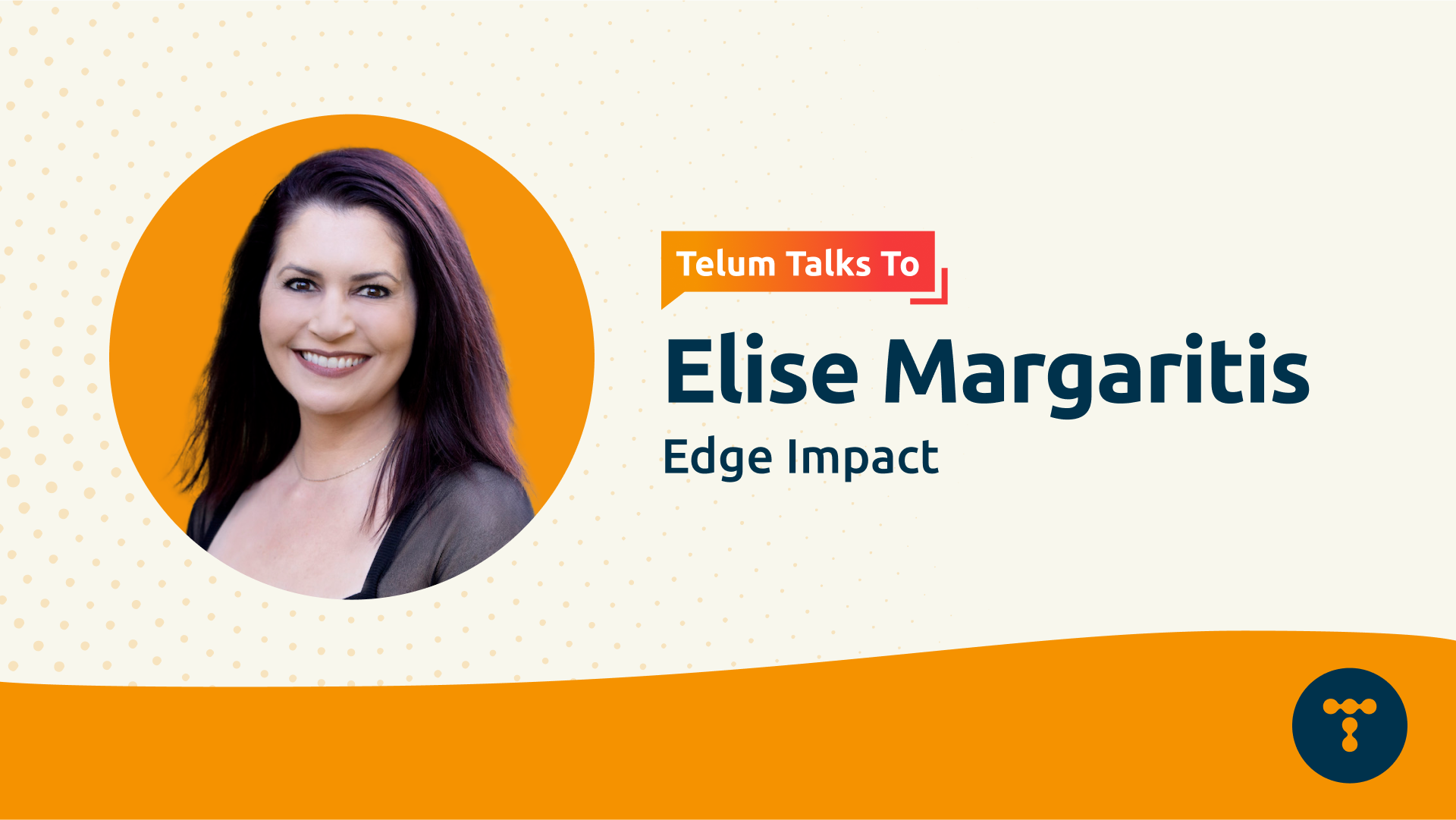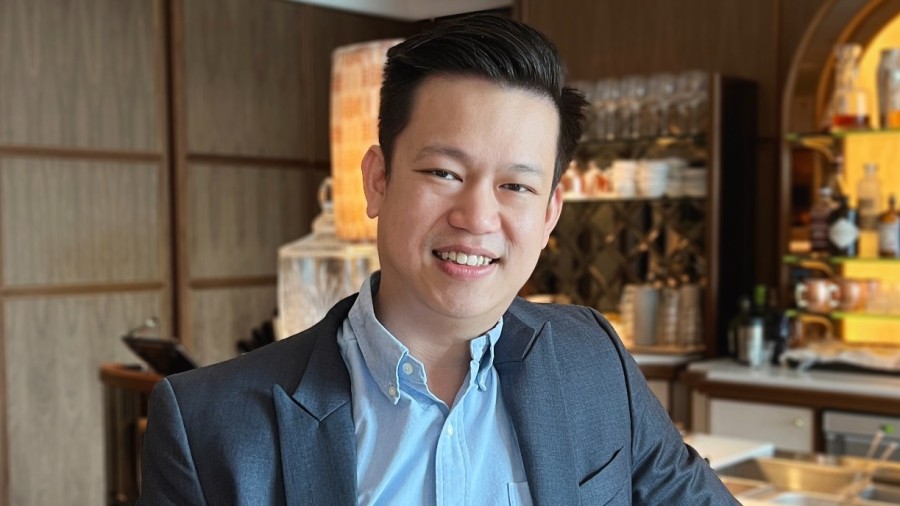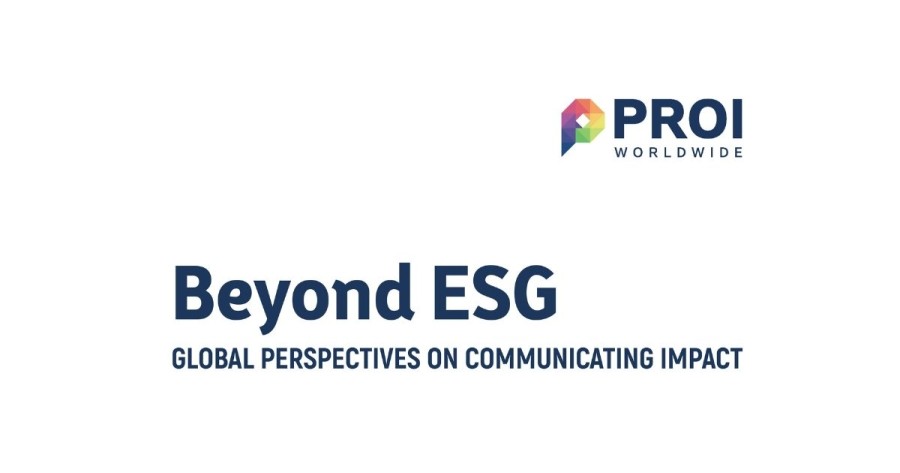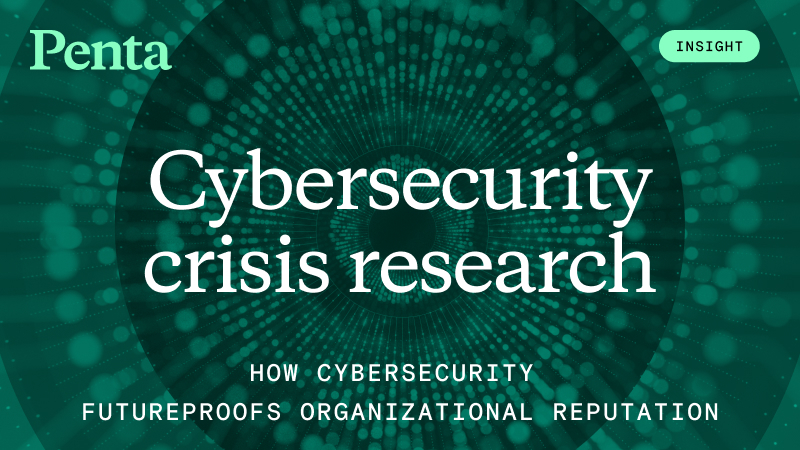In a time when terms like "greenwashing," "net-zero," and "ESG" dominate headlines, sustainability has taken centre stage in the corporate world. Communicating this topic effectively, though, can prove to be a complex challenge.
Telum spoke with Elise Margaritis, Principal, Sustainability Communications at Edge Impact, whose career spans nearly two decades, working in and around the environmental and sustainability communications space. She shares her insights on the changes in sustainability comms strategy, keeping public trust, audience behaviour, and more.
Before we get into the deeper stuff, how would you personally define sustainability communications?
It is the art of making the invisible visible - translating complex, often abstract concepts like carbon footprints, circular economy or human rights, into stories that people can relate to.
I've learned that it's not about broadcasting green credentials or ticking ESG boxes, but it's creating a connection to what people already care about - their health, their children's futures, and unsurprisingly...their bottom line!
It's also about effective translation. Taking data and policy and strategy, and making it relevant to different audiences: the head of marketing who wants to know how this will impact the brand, employees seeking purpose, or customers aligning values with choices.
It also requires balance because sustainability sits at the intersection of urgency and hope. We're dealing with existential challenges, but fear paralyses people, so instead, we need to help them feel empowered to contribute to solutions.
In recent years, we've seen climate change messaging shift toward empowerment and solution-focused narratives. Is this approach sustainable, or could fear-based messaging resurface as generational perspectives evolve or the climate crisis intensifies?
What a great question. My view is that the answer lies in understanding why fear-based messaging fails in the first place.
Psychologically, fear motivates short-term action but creates long-term paralysis, which we saw play out during COVID. During initial lockdowns, fear and uncertainty drove rapid shifts: flights grounded, roads emptied, factories paused. This led to almost immediate dramatic environmental results: skies cleared, waterways ran clear, emissions plummeted - but that behavioural change didn't last. As the immediate threat faded, old habits returned. Because it wasn't anchored in agency, it was driven by fear, not choice. No one decided to reduce their impact, they were reacting to a crisis. And while climate change is a crisis, many perceive it as a distant or abstract one.
Fear wins headlines, but it doesn't build long-term commitment. Empowerment, on the other hand, gives people a sense of purpose. But sometimes we swing too far into toxic positivity, presenting climate action as easy or painless - when it's not.
As for generational perspectives, I've noticed younger audiences respond better to complexity and nuance than we give them credit for. They want the truth, including the hard parts. They're less interested in being shielded from climate realities and more interested in being equipped to address them.
The most resilient messaging will combine urgency with agency: this matters enormously, and here's exactly what you can do about it.
Building on the shift in climate communication strategies, there's a growing narrative suggesting that public support for achieving net-zero is waning. Former UK Prime Minister Tony Blair recently claimed that plans focusing on phasing out fossil fuels are 'doomed to fail.' How can communicators in the environmental and sustainability space effectively respond to such evolving narratives without losing public trust?
Public support for climate action is fragile when it collides with economic pressures, lifestyle changes, or perceived unfairness. The backlash against policies like low emission zones or restrictions on gas appliances shows that good intentions aren't enough if the transition feels imposed rather than co-created.
Our response needs to be both strategic and humble. We can't dismiss these concerns as fossil fuel propaganda or public ignorance. Some scepticism is reasonable, given the complexity of energy systems, supply chains, and social equity considerations.
Instead, communicators should focus on making the transition tangible and inclusive. Show how net-zero strategies create jobs, improve health outcomes, enhance energy security, and reduce costs over time. Make the benefits visible before the sacrifices are required.
We also need to be more honest about trade-offs. If we pretend there are no costs or complications, we set ourselves up for failure. But we can frame these challenges as problems to solve collectively rather than reasons to abandon the goal.
Ultimately, we need to shift from selling net-zero as a destination to framing it as a direction. Progress matters more than perfection.
Through your work in sustainability and environmental comms, what insights have you gained about audience behaviour?
One of the biggest insights I've gained is that most people do care deeply about the planet, but they feel overwhelmed, disempowered and unsure how to make a difference. (Remember that BP 'share your pledge' meme? 'I pledge not to spill 4.9 million barrels of oil into the Gulf of Mexico'. Case in point).
I saw this play out while helping travel and transport companies encourage customers to opt in to offset programs. The logic was sound: for a few extra dollars you can offset your emissions by funding verified carbon projects. But uptake was low.
Research showed the barrier wasn't cost, it was confusion. What's an offset? Where does the money go? Does it actually make a difference? In the absence of information, people defaulted to inaction.
So we reframed it, making the offer hyper-clear and linked to real and specific outcomes: restoring native habitat, supporting Indigenous land stewardship, empowering developing communities. And the engagement followed.
People aren't waiting to be convinced that sustainability matters - they want a clear, credible better choice.
How do you navigate the balance between promoting a client's sustainability initiatives and ensuring authenticity? Have you ever had to challenge messaging that felt like greenwashing?
Of course! If you work in sustainability comms and haven't challenged messaging, you're either working with absolute saints or very creative spinners! (Check out my recent ESG Confessions post).
One client confidently came to us with a claim straight from their supplier, that their product was helping protect vital habitat for beloved native wildlife. It had a huge 'fur and feather' factor. Emotive, marketable...and potentially true.
But when we asked for evidence, project data, verification, anything, the trail went cold. It wasn't that the claim was false, it just couldn't be substantiated, and in sustainability, that's not good enough. You can't say you're saving the koalas without showing the credentials.
Ultimately, the goal isn't to sound impressive. It's to be believable. The best sustainability stories aren't the glossiest, they're the honest, transparent, relatable ones you're proud to raise your hand for when someone asks, 'Says who?'.

Telum Talks To: Elise Margaritis, Principal, Sustainability Communications at Edge Impact
by Telum Media
15 August 2024 12:31 PM
6 mins read
Telum Media creating connections
Get in touch to learn more
Next story
Telum Vox Pop: PR Tech in 2025
You might also enjoy
Moves
Aaron Tan has joined FleishmanHillard as Auto Practice Lead and Account Director, bringing experience across branding, communications, marketing and digital strategy.
Based in Singapore, he has accumulated more than 15 years of experience, having previously held senior roles at agencies including The Ate Group and W Communications.
31 December 2025 2:49 AM
1 min read
Research
PROI has released their latest report, "Beyond ESG: Global perspectives on communicating impact". With insights from 11 global communications agencies, the report highlights key trends shaping how ESG and purpose will be communicated in 2026.
Ted Deutsch, Executive Managing Director of RF|Binder and Chair of PROI's ESG Working Group, said: "While certain markets are shying away from acronyms and terms that are seen as overly political, this PROI report confirms that companies are still focused on driving change through sustainability, corporate culture and good governance. The challenge now lies in communicating this with authenticity."
ESG across the regions
ESG maturity differs widely by region. Markets such as Australia, Switzerland, and the Middle East operate in relatively advanced regulatory environments. In Australia especially, Paula Cowan, Managing Director at ImpactInstitute, described ESG as no longer a "nice to have," but rather a licence to operate.
Meanwhile, countries such as Poland and the Czech Republic are experiencing signs of ESG fatigue. As Dirk Aarts, CEO of 24/7 Communication, observed in Poland: "...enthusiasm has cooled. Many businesses now treat ESG chiefly as a regulatory requirement rather than a reputational advantage."
In Thailand, ESG is viewed as central to long-term competitiveness, economic resilience, and access to global markets. Whereas in Ukraine, ESG is shaped by wartime realities and EU integration, with social impact and resilience taking precedence.
Despite their differences, one thing stays consistent: stakeholder expectations are converging. The report highlights how companies are increasingly expected to demonstrate real progress and credible outcomes rather than just showing intent.
Global pressures driving change
It was reported that every region, in one way or another, was being impacted by global forces reshaping their ESG communications. Regulatory alignment stood out as a major driver, particularly around mandates by the International Sustainability Standards Board (ISSB), the Corporate Sustainability Reporting Directive (CSRD), and other international disclosure frameworks.
Trade-related mechanisms, such as the EU's Carbon Border Adjustment Mechanism, have resulted in a push for ESG adoption in export-oriented economies like Thailand. Chelsea King, Head of PR Operations and Editorial Director Midas PR, explained: "This creates direct financial pressure and has spurred Thailand’s domestic carbon tax and mandatory reporting efforts."
Political dynamics also play a significant role, with the U.S. becoming the focal point of ESG politicisation, influencing corporate behaviour across multiple markets. This has contributed to more cautious language globally. For example, in Canada, "...U.S. discourse has influenced Canadian corporate leaders to reconsider how explicitly they use the 'ESG' label," said Kimberly Cohen, CEO of Brown & Cohen.
At the same time, global enforcement action against greenwashing is increasing in Canada, as well as other markets such as Australia, Switzerland, and the UK, reinforcing a shift toward proof-based communication.
Language and framing
The report outlined a clear global trend: the declining use of the acronyms "ESG" and "DEI" in public-facing communications. While these terms remain common in investor, regulatory, and technical contexts, organisations are shifting toward simpler and less politicised language, such as "sustainability," "responsible business," "resilience," and "impact."
Kimberly noted that in Canada, these acronyms are increasingly being broken down into their component parts, whereas in Poland, Dirk explained that the narrative now focuses on health, quality of life, and local community impact - moving away from war language, such as "fighting climate change," toward tangible well-being. This shift doesn't reflect a divergence from ESG principles, but rather as an effort to improve clarity, reduce political risk, and connect more directly with local audiences.
Across several regions, including Canada, the UK, the U.S., Thailand, and the Middle East, an increase in social initiatives continues, but under different labels, such as workforce development, inclusion and belonging, human capital management, and community impact.
Communications challenges
Across all regions, communications leaders are reported to have been facing similar challenges, particularly in balancing ambition with credibility. Stakeholders expect companies to act, but are increasingly rejecting vague or exaggerated claims. Greenwashing, social-washing, and "greenhushing" - deliberately under-communicating progress, which is reported to be rising in Australia - are recurring risks.
Another challenge is internal alignment. ESG data and narratives often sit across multiple functions at an organisation, and when teams are not aligned, messaging can become inconsistent or fragmented, resulting in a lack of trust. In sensitive contexts, such as in Ukraine or politically polarised markets like the U.S. and UK, audiences are sceptical and quick to point out inauthenticity.
Looking ahead
Contributors generally predict that over the next two to three years, ESG communications are expected to become more integrated with financial reporting and core business strategy. Many regions anticipate stricter disclosure requirements, greater use of assurance, and increased focus on governance as the foundation for environmental and social credibility.
Media scrutiny is also intensifying. Investigative reporting on ESG claims is growing, while routine sustainability announcements receive less attention unless backed by data or clear outcomes. At the same time, there is continued demand for accessible explanations, case studies, and stories that demonstrate how ESG efforts deliver tangible benefits to communities, employees, and economies.
Practical guidance for communications professionals
Based on insights across all 11 markets, some common practical guidance include:
- Lead with evidence: Anchor claims in data, defined methodologies, and disclosures, with assurance.
- Adapt language and be precise: Localise messaging and ensure clear messaging that resonates with target audiences, while avoiding unnecessary jargon.
- Show progress over time: Share interim milestones and regular updates to demonstrate momentum and avoid greenwashing or greenhushing.
- Integrate ESG into the business narrative: Position environmental, social, and governance efforts as part of core strategy and operations, rather than a standalone initiative globally.
Find the full report, including in-depth insights for each region, here.
29 December 2025 6:15 AM
5 mins read
Research
Penta’s latest white paper, "Cyber risk is stakeholder risk", explores the growing reputational impact of cybersecurity incidents across industries and stakeholder groups. The analysis leverages Penta’s media intelligence and stakeholder sentiment modelling, covering more than 4.8 million global mentions from January 2024 to August 2025.
Key trends shaping the cyber risk landscape
The study finds that overall stakeholder trust is eroding, reflected in strongly negative sentiment around customer privacy, data security, and incident response across all stakeholder groups - particularly regulators and investors.
Cyber risk is also emerging as a geopolitical concern. State-linked attacks are increasingly viewed as potential national security issues, exposing organisations operating in sensitive sectors to heightened geopolitical risk.
At the same time, reputation recovery is no longer just about containment. The research suggests that a brand’s ability to rebound from a cybersecurity incident is closely tied to the effectiveness of its response, with fast and visible executive action outperforming opaque or delayed communications.
Cyber risk breakdown by industries
Key trends shaping the cyber risk landscape
The study finds that overall stakeholder trust is eroding, reflected in strongly negative sentiment around customer privacy, data security, and incident response across all stakeholder groups - particularly regulators and investors.
Cyber risk is also emerging as a geopolitical concern. State-linked attacks are increasingly viewed as potential national security issues, exposing organisations operating in sensitive sectors to heightened geopolitical risk.
At the same time, reputation recovery is no longer just about containment. The research suggests that a brand’s ability to rebound from a cybersecurity incident is closely tied to the effectiveness of its response, with fast and visible executive action outperforming opaque or delayed communications.
Cyber risk breakdown by industries
- Retail: The most negative sentiment overall, driven by the direct consumer impact of breaches, sensitive customer data, and operational disruption.
- Technology: The most visible sector in cybersecurity discourse, where recurring attacks and regulatory fallout continue to erode trust in digital infrastructure.
- Telecommunications: Among the hardest-hit sectors, affected by repeated attacks and legacy breaches resurfacing on the dark web, raising national security concerns.
- Financial services: Sustained negative sentiment linked to high-profile breaches, customer data exposure, and significant crypto-related losses.
- Healthcare: Persistent distrust driven by repeated breaches involving patient and billing data, alongside heightened scrutiny of AI-related data risks.
- Automotive: Negative sentiment following ransomware attacks that disrupted dealer operations and raised concerns about digital resilience in increasingly connected vehicles.
Overall, the study notes that industries with the most direct consumer interfaces tend to experience the steepest reputational declines following cybersecurity incidents.
Key takeaways for communications and public affairs leaders
Key takeaways for communications and public affairs leaders
- Cyber risk is board-level risk: It must be managed as a cross-functional priority, not solely as a technical or compliance issue.
- Integrated response drives resilience: Organisations that align IT, legal, communications, and executive leadership with clear escalation protocols and stakeholder-specific strategies are better positioned to protect trust and reputation.
- Proactive oversight is essential: Scenario planning, continuous monitoring, and treating incidents as reputational challenges enable faster, more effective responses.
- Leadership visibility matters: Transparent, decisive, and timely action by executives is the most critical factor in stabilising stakeholder confidence and reinforcing organisational credibility.
29 December 2025 1:47 AM
3 mins read


